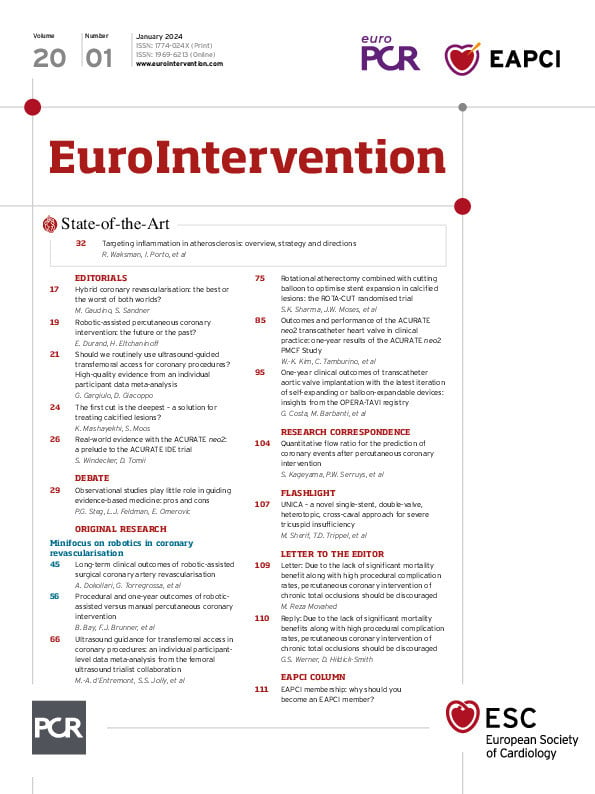With great interest, I read the manuscript entitled “Three-year Outcomes of A Randomised Multicenter Trial Comparing Revascularization and Optimal Medical Therapy for Chronic Total Coronary Occlusions (EuroCTO)” in EuroIntervention1. They confirmed numerous previous data that chronic total occlusion (CTO) interventions do not improve clinically significant outcomes, myocardial infarction or mortality. However, the authors overstated the benefit of a CTO intervention by stating that CTO percutaneous coronary intervention (PCI) appears to be a safe option for patients with a single remaining significant coronary CTO. The authors completely downplayed numerous trials showing very high complication rates in patients undergoing CTO PCI in comparison to other lesions23. We recently published the largest data regarding CTO PCI confirming much higher in-patient mortality and complications in this population4. A weighted total of 259,574 patients underwent CTO PCI. The CTO patients had a 3.17% mortality rate versus 2.57% for non-CTO PCIs (odds ratio [OR] 1.24), which remained significant despite adjusting for numerous baseline and clinical characteristics. Furthermore, patients with CTO were compared with non-CTO PCI, showing much higher rates of myocardial infarction (OR 2.85), coronary perforation (OR 6.01), tamponade (OR 3.36), contrast-induced nephropathy (OR 2.05), procedural bleeding (OR 3.57), and acute postprocedural respiratory failure (OR 2.07). The total postprocedural complications for CTO patients were more than 3 times those of non-CTO patients (OR 3.45). In concordance with our conclusion, Allahwala et al5 agree that CTO PCI should not be performed unless the patient has severe resistant angina and for symptom release only. However, CTO PCI is too often performed without informing the patient that this dangerous procedure will not prolong life. It is time to have a better oversight of interventionalists who perform too many unnecessary PCIs of CTO6.
Conflict of interest statement
M.R. Movahed has no conflicts of interest to declare.

